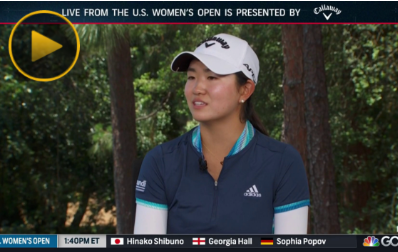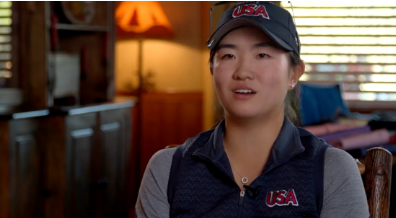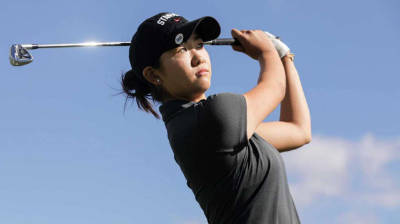 AmateurGolf.com Staff | 23 Apr 2023
AmateurGolf.com Staff | 23 Apr 2023
This is the fifth in a series of Ranked Player articles, using information gathered by surveys from players listed in our various rankings. So who are these players? Find out here: Ranked Player Survey: top amateur golfers share what they think…and what they know
We’ve all been there.
At some tournament, somewhere, and at some point during the round, it becomes apparent that another player in the group is going to be a problem.
There may be a brief moment of hope that maybe, just maybe, our gut feeling was wrong and that we have misread the situation.
But no, as if competitive golf isn’t hard enough, this player is going to be an additional challenge, one that we didn’t anticipate (or, if the player has a reputation, maybe we did).
We asked the top amateurs in golf to characterize the most challenging playing partners they have ever encountered. To allow them to answer freely, this question was marked “confidential” and no names will be used when referencing the answers we received.
CONFIDENTIAL Q: Without naming names, describe the worst playing partner you have ever had in competition, and how did you handle the experience?
We seem to have struck a nerve with this question(!), and the answers did in fact flow freely.
So what makes a bad playing partner? We heard about very particular behaviors which we detail below, but a couple of our respondents summed it up very nicely:
“Anyone who is rude and not considerate of others.”
“Poor behavior and didn’t treat others with respect.”
“For me it comes down to etiquette and attitude. Anyone that is out there with no respect for other golfers or the course, is someone I have no interest to play with again.”
“The worst playing experience is with that player who is oblivious to his playing partners in terms of courtesy… It’s not about him it’s ALL about him.”
So in many ways those who we’d rather avoid on the golf course are the same as those we’d rather avoid off the golf course: those who put themselves above all else and have little to no regard for anyone else.
This no doubt explains the allure of prestigious events like the Crump Cup, the Coleman, the Augusta National Women’s Amateur, and others. Yes, these events are played on some of the best courses in the world, but they are also run by committees that insist on a level of decorum that ensures that everyone is on their best behavior. If they’re not, they don’t get invited back. So for many, these events present the ideal of amateur golf: fierce but ultimately friendly competition, played in a spirit that respects the game and all those involved with the event.
So who are the people who run afoul of this spirit? Almost of our responses can be fit into a few types. We detail them below. We sincerely hope you’re not among them!
THE CHEATER
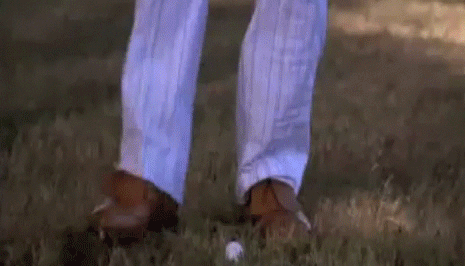
This was probably the most disconcerting finding of our entire survey: we had 15% of respondents say that they had caught someone cheating in a competition. And ability level didn’t factor in; some of the alleged perpetrators were highly-accomplished players.
It goes without saying that this is the ultimate form of disrespect to one’s fellow competitors; the rules of the competition are implicitly agreed to by all players, and when someone decides to play under conditions that benefit only that player at the expense of everyone else in the field, then it stains the entire competition.
The challenge this presents to other players in the group is what their response should be and how to handle the distraction of being put in the position to enforce the rules. Some of our respondents were able to handle it well, others not so much. Examples:
“A player blatantly cheated 3 times in a single round and when approached about it became extremely confrontational. He was much larger than me and got in my face, very aggressively.”
“I played with a girl once whom I caught moving her ball closer to the hole when I looked away for a moment. I suspected it a couple of times then pretended I wasn’t paying attention and saw her move the ball an entire arm’s length. I called her out for cheating and gave her a penalty. She didn’t say a word to me for the rest of the round.”
“Paired with a known cheater in a tournament. I vowed to not let him cheat so I watched him like a hawk all day. It was exhausting.”
“I had a playing partner who was fluffing their lies. I told him I saw what he was doing and gave him the opportunity to call the penalty on himself. He declined to do so and I alerted a rules official.”
“I played the final round of a tournament with a guy who flat-out cheated, saying he found his ball after duck-hooking it into a hazard. When he holed out the ball that wasn’t his for a 7, he said he made a 6. I counted them for him and he said ‘oh yeah, you’re right it was 7’. I was riding in the cart with him and wasn’t going to screw up my day by telling him I knew it wasn’t his ball that he hit. Maybe I should have but I did tell the people running the tournament about it after the round.”
“Played many tournaments with one particular individual. She often cheated with respect to her score, and when confronted denied it. Eventually, I had to report her to protect the field.”
“A guy cheated by moving his coin towards the hole several times. I told him when the round was over that I could not sign his scorecard and why.”
“I played with an individual who was really good and really accomplished but cavalier with the rules. He asked for relief when he should not have received relief but it’s always hard to say ‘no’ to someone when you have to share a cart with him for 18 holes.”
“Player constantly moving his ball and teeing it up in the rough. It is well known he does it. The truth of the matter is I didn’t call him on it. I know that wasn’t the right thing to do because you are supposed to protect the field. The end result is it affected my game a great deal because it took away my own concentration. I still regret not calling the penalty on him.”
THE SLOW PLAYER
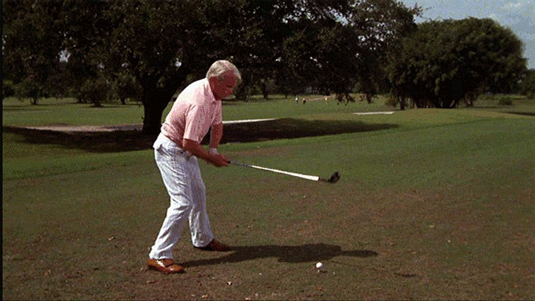
This was the #1 response we received, and probably the most common “bad” partner we are all likely to be paired with. This player can also affect the competition, as a group that falls behind can be subject to timing or penalty, and groups behind can have their pace affected as well.
The question becomes: what to do about it? While most players retreat into their own bubbles of concentration and wait for tournament officials to take action (though one player said he requests that the group be timed), some prefer to encourage or confront the player.
“A number of college players over the last few years take a ridiculous amount of time to plan and execute a shot, which leads to 6-hour rounds. I have to slow down my walking and take more time over my shots to avoid having a large amount of time just standing around waiting.”
“A slow player at [a USGA championship] caused us to come very close to missing several time checkpoints and the rest of the group had to rush to avoid penalties. Talked to him during and after the round and told him it was very selfish and unfair to his playing partners.”
“Extremely slow player who acted like we were playing the U.S. Open. He took 3-5 minutes to decide what to do on most of his shots. Although I tried not to speed up, I somehow allowed it to negatively affect my day and score.”
“I’ve had a number of rounds playing with particularly slow players – the types who don’t begin to prepare for their shot until it’s their turn. They do full 360-degree reads on the greens and put the group out of position.”
“The player who has a family member caddy who has to discuss every single thought and decision before doing anything.”
“When people are incredibly slow and end up forcing the other people in the group to make up time for them. You end up spending a lot of energy trying to ignore them. A lot of times I will practice without taking practice swings just so if I run into a situation like that, I won’t be thrown off and I can make the argument if our group gets slapped with a penalty that I wasn’t even taking practice swings once on the clock.”
THE HOTHEAD
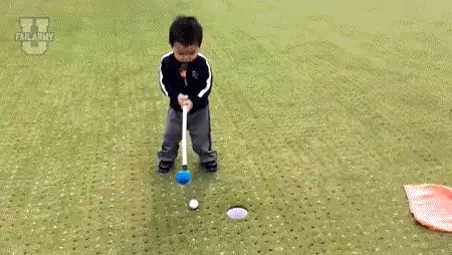
The playing partner with the extreme temper doesn’t usually affect the competition as directly as the Cheater or the Slow Player (although the author was once hit in the jaw with a club flung by a player who hit a poor tee shot). But it can be a distraction and as one top college player put it, “destroy the mojo of the group”. Some of our responses:
“I played with someone who would swear and pout whenever he hit a bad shot, sometimes throwing his club. I didn’t say anything on day 1, though I was pretty annoyed. On day 2, he slammed his putter into the green on our 4th hole, damaging the green, after missing the putt. I had walked off the green toward the next tee (as he had slow-played us and put us on the clock), but when I saw the damage to the green, I went back to the green as he was walking off and gave him an earful–telling him while I didn’t like his swearing and club-throwing, he just can’t damage the green. I was so hot that I ran ahead on the next hole after hitting our drives, and then unfortunately, I hit his ball (we had both put our drives into the trees), resulting in a two-stroke penalty for me. So I didn’t handle it so well.”
“After finishing the round, and both of us not making the cut, he blew up in the scoring tent berating the officials.”
“Was paired with [the defending champion, name redacted] at the [USGA Championship name redacted]. The player we were paired with went absolutely nuts, shouting, kicked over a water cooler, yelled at his fiancé and then walked off the course, just quit. If he made it to the end I might’ve punched him but he walked off before I had a chance.”
“Top amateur missed a short putt and went crazy with F-bombs and then threw his putter 50 yards towards the next tee box, and he is a USGA Champion.”
“Had a playing partner who threw clubs, yelled at himself, beat his bag with his clubs, talked down on everyone, and wasn’t aware that he was the one slowing down pace of play. Didn’t pay any attention to him as it’s not my job as a player to exert energy outside of my own game.”
“I once played with this guy who would throw his golf club every time he hit a bad shot. Then he would walk down the tree line alone and cuss himself out.”
“I had a guy I was actually riding in a cart with on the 15th hole of the last round of a state championship; as I was 6 under par and tied for the lead, he takes my clubs off the golf cart and drives off because he was playing poorly.”
“I was paired with someone in the state amateur several years ago. He had a terrible temper and berated his Mom who was walking with him several times during the round.”
“Occasionally be paired with a player who displays their anger outwardly. That is never fun. I have also been paired with players with parents who get angry or act out during the round. I saw a parent throw a player’s clubs down and walk off the course once. Things like that affect everyone in the group.”
“Temper/rage so bad it made the hairs on my arm stand on end…he broke 5 clubs the first time I ever played with him…and he’s slow.”
“A slow player with temper. Stay out of his way and enjoy the show.
THE PRIMA DONNA
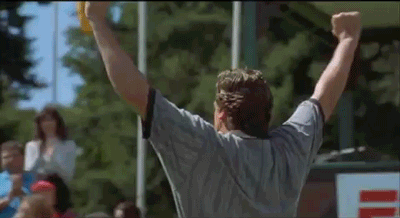
The term “prima donna” literally means “first lady” in Italian and refers to the lead female singer in an opera. But (much like the similar term “diva”) the term has come to have a negative connotation, that of someone who has an inflated view of their own importance.
In golf, that would be someone who feels deserving of special treatment or attention, or more generally that they are just more important than anyone else. Those who forget that golf is what you do, not who you are. Those who don’t realize that others might not really care about how good you are or what you have accomplished.
Being drawn with a player with such a world-view can mean 4+ hours spent with someone completely oblivious to anything or anyone else.
“It doesn’t happen very often, but players who think they are the next Nicklaus or Woods or whoever and treat other players like trash. Laughable really. Confidence is one thing, but thinking you are a better person because you just shot 65 is sad. I just ignore them.”
“A guy who was so self-absorbed. No regard for other players in the group.”
“An individual who is only concerned with his game and no one else’s — walks in your line, moves while you hit.”
“Guys who were born rounding third base and just treated fellow players and caddies as if it were luck to be in their presence.”
“A playing partner that had no consideration… Would walk in my line, tee off without the honor. He was an accomplished player that belonged to a very prestigious golf club. In situations like this, I always tell myself that you never really know what is going on in individuals’ lives.”
“Player who was beyond self-involved and complained about every aspect of the course, tournament, etc.”
“I played with 2 players in particular who were tremendously arrogant. Making comments at the wrong time and personal insults designed to distract my intentions. I handled it by ignoring them and going on to win those tournaments. And in both cases neither player offered their hand in congratulations. I certainly won’t forget those people.”
(DIS)HONORABLE MENTION
There were a few other player types mentioned:
The Complainer: nothing about the tournament or their game is good enough
The Blamer: nothing is ever their fault, and they tend to place blame on anything or anyone else
The Gamesman: Use of the “dark arts” has long been a staple of match play, where the game is against one opponent rather than an entire field. But some players take gamesmanship a little too far, desperate to turn the round into a battle to be won, rather than a game to be played.
Fortunately (and many players mentioned this), most players are perfectly delightful to play with, and getting paired with the kinds of players mentioned in this article is relatively rare. If you do get paired with one, hang in there and take it as a mental challenge. It is just a game, after all.
Be sure to revisit AmateurGolf.com as we continue our Ranked Player Survey series, sharing the expertise and experience of our group of ranked player survey respondents.

